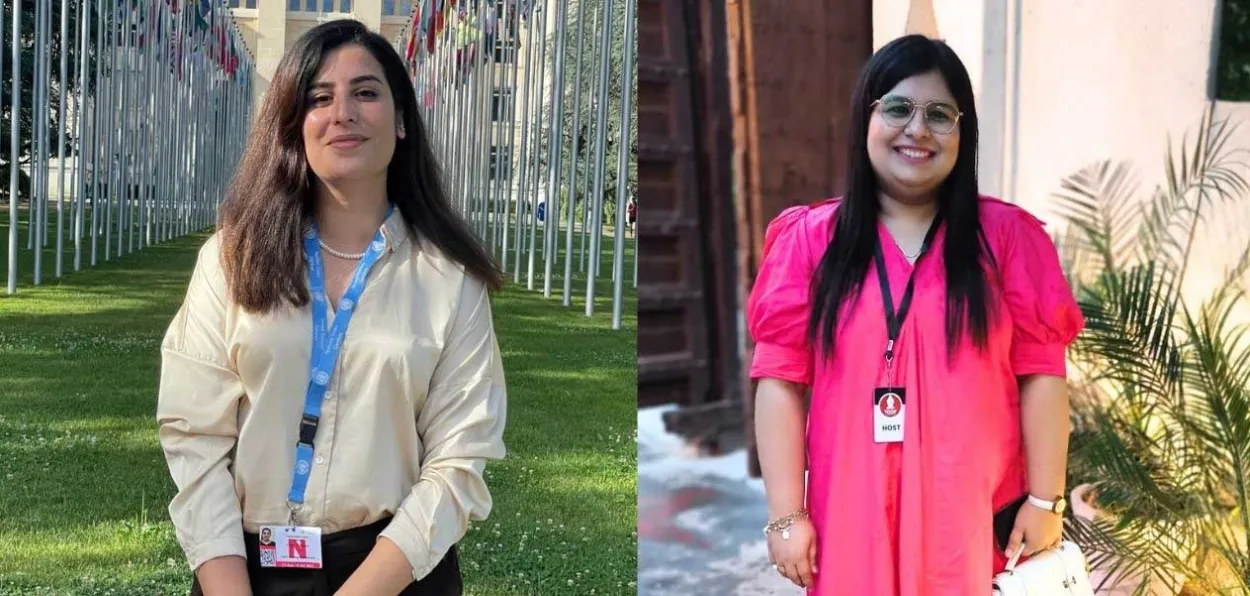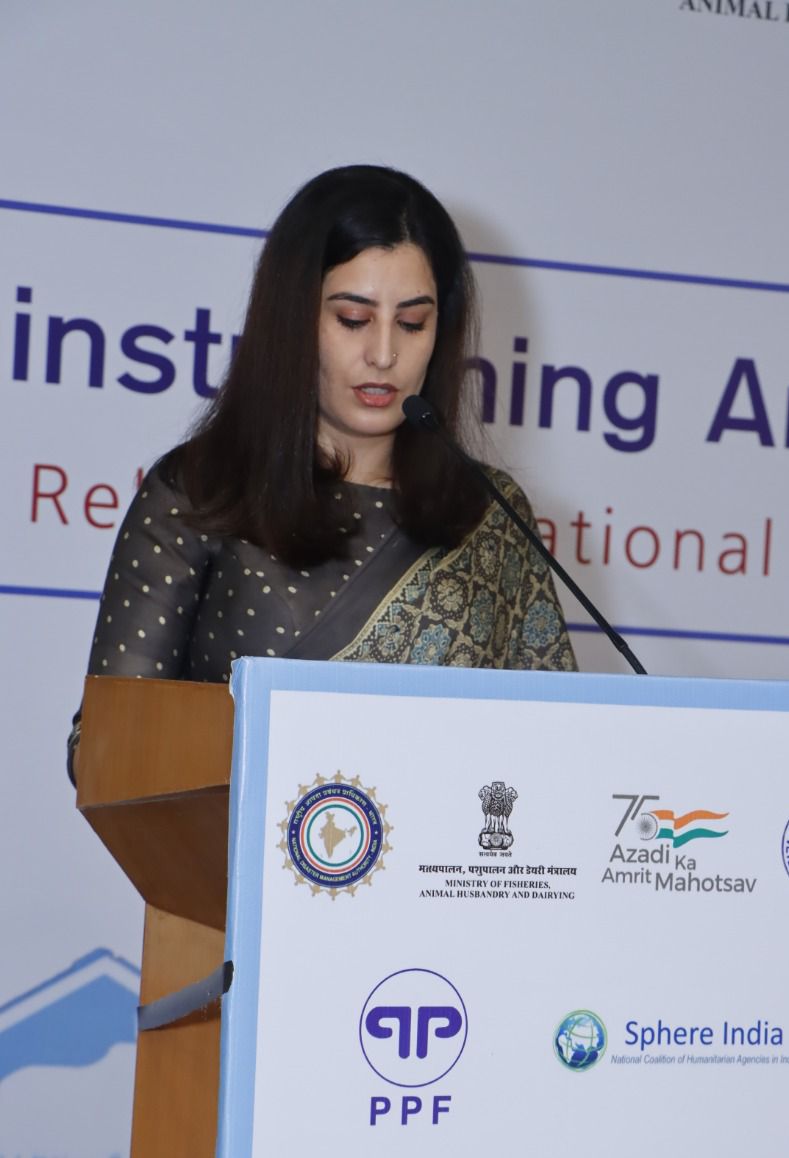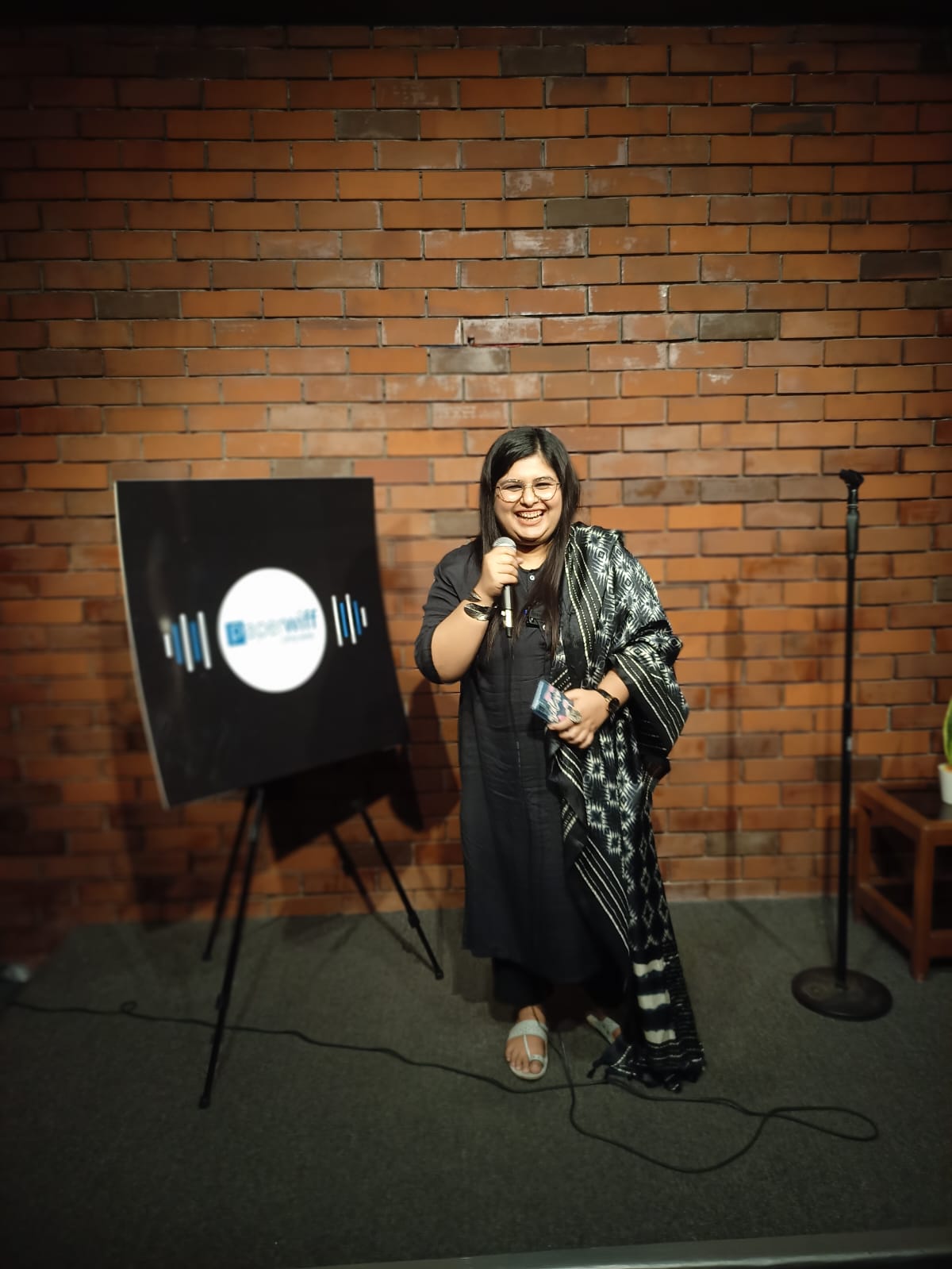
Aasha Khosa/New Delhi
Syed Tahmeena Rizvi and Shariqa Malik were growing up simultaneously in two different towns in India and amid different cultures – one in Kashmir and the other in Uttar Pradesh - and yet their experiences of growing up have commonalities. Both refuse to be defined by the clothes they choose to wear and are proud to be appreciated for their work, efforts, and achievements. Below are their stories:
Syed Tahmeena Rizvi is proud to be the first woman from her family to study outside Kashmir. “In our extended family, no woman even thought of studying beyond graduation. They walked on a conventional path – finishing their graduation and getting married.”
The South-Delhi-based Tahmeena who is enrolled in a Ph.D. degree programme from the Bennett University of Greater Noida, UP, says back home in Magam of the Budgam district, folks – relatives, neighbours, and even her family do not necessarily share her pride in becoming a successful person.
“For them, I am an alien; they say ladki haath se nikal gayi (our girl has gone out of our grip).”
Looking back at her life as a young child growing up in a conventional and yet well-to-do Kashmiri Muslim family, Tahmeena says she was enterprising and her mind was full of ideas from the very beginning. “At the age of 10, I started dabbling in fashion and tried to create a fashion brand. But nobody in my family took me seriously.”

Syed Tehmeena Rizvi
While her brother was offered a slew of choices for studies after completing his 12th standard, including being sent to Pune for doing a course in business management, she had to fight for everything, including going out of the Valley for studies. “I was told that sons always come back but once the girls leave home, they do not return,” Tahmeena, a Research Associate at the Policy Perspectives Foundation, New Delhi, told Awaz-the Voice.
Looking back at life as a child growing up in Magam, a picturesque town closer to the famous resort of Gulmarg, this 27-year-old Kashmir woman says she had an innate quality of being curious about everything – something that is a sign of a bright mind and considered good. She questioned norms.
Every time she asked a question to anyone in her family, she was told rather sternly. “You are a girl; stay within your limits.
And yet she questioned the imposition of a head cover (dupatta, Hijab, burqa) for which she was declared “Bhaghi,” a rebel.
Her mother told her that “good girls” conform to the norms set up by society and don’t question these. “It’s no good to be different,” her mom counselled her.
“My mother told me that girls must not attract attention because it’s not always positive for them and for this covering their body to maximum is the best way,” Tahmeena recalls.
She says her father who ran a successful business was livid with her for not covering her head with a Chunni at home. He mother would constantly remind her of her father's displeasure.
Finally, she fought and managed to persuade her parents to send her to Delhi for joining a coaching class for preparing for the UPSC-conducted Civil Services. They were reluctant but on the advice of a friend, they allowed Tahmeena to follow her dream.
It was in the coaching class that Tahmeena met her future husband, who is a computer science engineer and the two tied the knot three years ago.
After Tahmeena gave up the idea of pursuing her civil services dream, her family was again livid with her. “My father asked me why I would do a job; He even offered to pay me a monthly sum equivalent to my first salary if I sit at home,” said Tahmeena.
When Tahmeena shifted from the co-educational school to a girls' school where others found her weird. “People even commented why I was wearing a palazzo and not a salvar.”
Tahmeena today lives by her norms and advocates the rights of women and supports interfaith communication. “I have reached a position where others' opinion doesn’t bother me.”
Shariqa Malik
The 28-year-old Shariqa Malik is a Delhi-based poet, marketing professional, and a trained teacher who likes to define herself as a financially independent woman.
Looking back at her life as a young girl growing up in Bareilly, Uttar Pradesh, this 28-year-old happened to be among a few Muslim students in school with majority Hindus. “I used to wear a tunic and a skirt as part of my school uniform and my mother was always worried about it. She would often say who would marry me after seeing me in such clothes,” Shariqa, 27, says.
Shariqa was protected by her father from being overburdened with the society-dictated norms of being a “good girl” and a slew of restrictions. A progressive man, her father had done his post-graduation in Agriculture Sciences and was working with the Food Corporation of India (FCI),
Shariqa said as a Muslim girl, she felt bad for not being able to do things that are normal for others like, she says, "wear a T-shirt."
She remembers the day when some guests were expected at home. She was in 9th standard and her mother asked her to appear before them wearing a dupatta.

Shariqa Malik
“Such restrictions are harmful to the mind of a young girl,” she says with the advantage of some hindsight.
Like all young persons, Shariqa had dreams, and such restrictions interrupted her. “Now I feel, sometimes parents are not that sensitive to the feelings of young people.” However, on that day, she had no option; she wrapped a dupatta around her chest before serving tea and snacks to the guests.
After graduation, Shariqa joined a course to become a teacher. She was required to wear a sari and put on makeup for demonstration of her lessons. This would be objected to her by people. By now, her mother had passed away.
“I heard people say look at this girl, her mother has passed away and she is roaming around.”
People objected to her wearing bright-coloured lipsticks and wearing a sari.
However, it was the support of her father that made her retain her self-belief. The bond between Shariqa and her father was so strong that she left her Master's course at the AMU, Aligarh, midway to be with her father as his caretaker after her mother's death.
Shariqa believes that she is an independent woman today because of the support and encouragement of her father while her mother wanted her to get an education while living with restrictions to be a "good girl."
ALSO READ: Hana Mohsin Khan is a pilot yet it wasn't easy for her
At present, Shariqa lives with her brother and his family in Delhi and works as a marketing professional. She is happy to see that people likeg her poetry and she is getting paid for it. "Life is good," she says.
